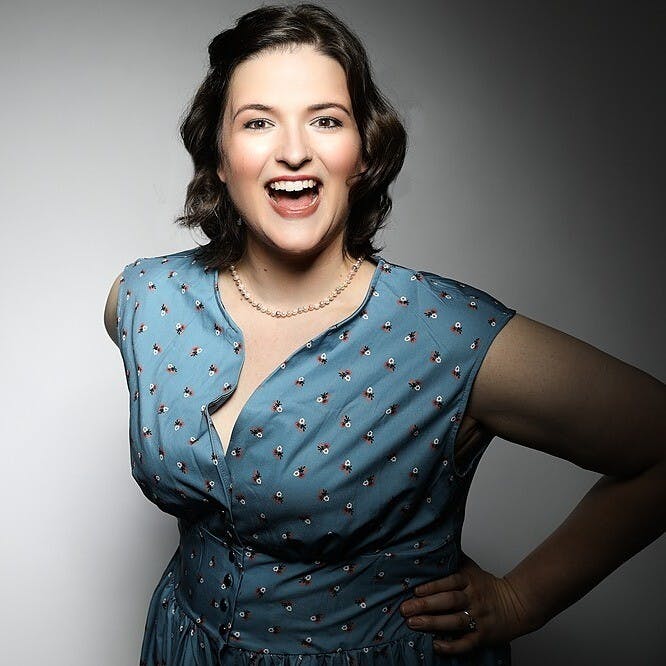Is Your Story a Chronicle or a Plot? [Understanding The Difference]
![Is Your Story a Chronicle or a Plot? [Understanding The Difference]](/_next/image?url=https%3A%2F%2Fwww.stage32.com%2Fsites%2Fstage32.com%2Ffiles%2Fcake%2F5bd73d21dd509-fixed.jpg&w=3840&q=75)
Is Your Story a Chronicle or a Plot? [Understanding The Difference]

In Aspects of the Novel, novelist E.M. Forster wrote, “The king died and then the queen died. The king died and then the queen died of grief.” The first sentence describes two events of a story, while the second sentence describes two events of a plot.
What's the Difference Between Story and Plot?
As many writers and critics have noted, the essential difference between a story and a plot is that a story is a series of chronologically ordered events while a plot is a series of causally related events. Think of dominoes being placed flat next to each other, one by one in a line, versus a single domino being flicked against another, knocking it down against the next domino and against the next, and so on and so on, down a long line of dominoes.
1) An Example of a Chronicle Story An example of a story comes from the life of Jesus Christ. Jesus is baptized by John the Baptist. He enters Jerusalem to preach. He is betrayed by Judas. He is crucified. The basic structure of this chronology is: This happened, then this happened, then this happened, and so on, like a news report. Because of its high stakes, intrigues, and brutal tragedy, this story is dramatic.
Many stories fail because they are only a chronicle of events; a series of loosely connected episodes. Stories often lack direct and long-term back and forth conflict between two lead characters. A news report, for example, is a story, not a plot. Nor is it a history or a biography.
 The events in a story are organized by time.
The events in a story are organized by time.
2) An Example of a Plot Let’s look briefly at some of the excellent plot in the film Saving Mr. Banks. Walt Disney wants to keep his promise to his daughters to produce a film about Mary Poppins, but he needs writer P L Travers to sign over to him the screen rights to her Poppins story. Solely out of a need for money, Travers accepts Disney’s offer to come to Los Angeles to discuss the project, but she is very negative about giving him any rights.
Travers’ conflicts with Disney and his creative team are difficult, but they try to charm her and show her their good intentions regarding adapting her story. Travers remains unconvinced and rejecting. To help her understand his vision and to learn more about the deeper meaning of her disagreement, Disney takes Travers to Disneyland.
Throughout the film, the motivated and toe-to-toe conflicting characters go back and forth between these two forces. In the climax, Disney finally understands the motivation of his antagonist and goes to London to confront her in one last effort to achieve his goal.
Is Your Script a Chronicle Story or a Plot?
Chronicle stories can be very dramatic. Sometimes they are the only way a specific story, because of its genre and nature, can be told. See for example The Odyssey, High Noon, and The Searchers. I believe, however, that plots are generally more dramatic than episodic chronicles. There are many reasons for this, but in this post I’ll discuss only one related writing issue.
When starting to develop your new story, one of the most basic choices you will face is: Will I structure my events as a story or as a plot? If you choose to construct a plot, one key way to guide this is to create your central conflict as a clash between character A and character B.
After doing this, you will then need to organize these character’s choices and actions as a back and forth line of conflict between them. Here is a simple (imaginary) example of that:
Plots have Cause & Effect, Action & Reaction Events
In a western, Character A, a Saloon Owner, wants to take over the town. He orders his thugs to drive Character B, the Marshal, out of town. The thugs threaten the Marshal and his allies. The Marshal reacts by confronting the thugs and arresting them. The Saloon Owner now reacts by hiring a famous gunfighter to kill the Marshal, whom he challenges to a showdown. The Marshal responds and kills the gunfighter. Needing evidence that the Saloon Owner is behind these threats to his life and town, the Marshal has a sidekick work for the Saloon Owner to uncover the truth. The Saloon Owner exposes this spy and in reaction he…and so on back and forth, action-reaction, between these two antagonists.
 The events in a plotline are organized by cause and effect.
The events in a plotline are organized by cause and effect.
You get the picture: a plotline, on a very simple level, is an escalating, back and forth conflict between a protagonist and an antagonist over a long series of logically related choices and actions. Such a plot-based structure creates drama because two distinct, personal and motivated forces are actively battling each other. This allows great suspense, strong character conflict, and forces your characters to make harder and more perilous choices as their conflict progresses. The plot is climaxed in a direct, personal and final confrontation where one character defeats the other.
Decide if Your Story is a Plot or a Story
By explicitly deciding if your script is a plot or a story**,** you the writer better understand and control the best way to organize your characters’ choices and actions. To see just a few good examples of the character A vs. character B nature of a plot, watch Die Hard, Shane, Notorious, and Les Miserables.

Scott McConnell has worked with story for more than 25 years, beginning as a story analyst
in Los Angeles for such companies as the Sam Goldwyn Company, the Sundance Institute,
Nu Image and the Roger and Julie Corman companies. Many years later he was showrunner
(writer/producer/director) for the US nationally syndicated Live Life and Win. Scott is also the
co-writer of the reality show Hollywood Bootcamp, as well as working on shows for Nat Geo,
Animal Planet/Discovery, TruTV, Spike and Fox. He is fiction and factual experienced and a
member of the Producers Guild of America.
If you would like to know more about his background and editing premises, please consult his
many articles on screenwriting and filmmaking published in (among others) Creative Screenwriting,
MovieMaker, The Guardian, FilmInk and Inside Film (in whose print publication he is currently
featured each month in the column “Screenwriting 101.”) Scott is a professional script consultant
and can be contacted on Stage32, or scottm100 or linkedin.com/in/scottamcconnell
The following link is to his resume and samples of his writing/clips, which attests to his experience,
professionalism and ideas re story. https://www.linkedin.com/in/scottamcconnell
Like this blog post? Please share it on social media (Facebook, Twitter, LinkedIn, email etc) by using social media buttons at the top of the blog. Or post to your personal blog and anywhere else you feel appropriate. Thank you.
As always, we welcome thoughts and remarks on ANY of the content above in the Comments section below...
About the Author

Scott McConnell
Screenwriter, Script Consultant, Story Analyst
Scott McConnell is a Melbourne-based writer/story consultant who has worked as a documentary producer in Los Angeles, a freelance writer and interviewer and in fiction development. He loves nothing more than working on story. See link below to subscribe to my free NEWSLETTER OF ACTIONABLE FICTIO...







